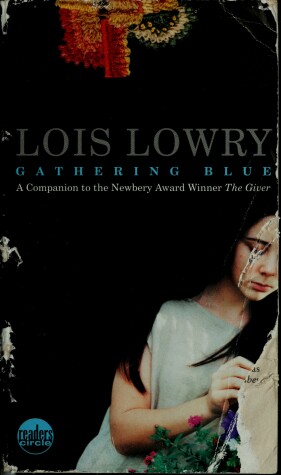Reviewed by Kim Deister on
Kira is damaged and alone in a world that hates anyone who is not in prime condition and able to contribute wholeheartedly to the community. The fact that she is even alive is a miracle, a miracle that, at first, seems to have run its course. But at the last moment, she is saved and given a new life. Much like the world of The Giver, her new life seems to be almost utopian. But is it really? This is another book that makes you look beneath the surface to see what reality truly is. What sacrifices have to be made in order to maintain that "utopian" world?
I enjoyed this book, although perhaps not as much as The Giver. I have to wonder if that is because of the differences between the two main characters. In The Giver, we (as readers) were connected to the community because Jonas was. At first, the community seemed utopian and wonderful so when we began to go beneath the surface, we felt the feelings of betrayal right along with Jonas. But in Gathering Blue, there was that true connection to the village because Kira herself wasn't truly connected to it. She was an outcast so she already existed on the fringes of the society.
Things to love...
--The different world/perspective. Two completely different societies during the same time create the foundation for interesting stories to come.
Things I wanted more/less of...
--More answers about the Council and their motivations, etc.
My Recommendation: I went into this book, assuming it was a traditional sequel. It was definitely not, but rather another look at the world of the time from an entirely different persepective. The throught-provoking questions are still there, touching on some of the same issues as the first book, as well as some new issues. But if you liked The Giver, I would highly suggest continuing on with the series. I gave this 4.5 mugs.
Reading updates
- Started reading
- 18 October, 2014: Finished reading
- 18 October, 2014: Reviewed
